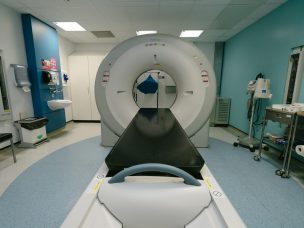Oncology
Acute Exercise Effects on Tumor Outcomes in Localized Prostate Cancer
Medically reviewed by Dr. Samuel Sarmiento, M.D., MPH on August 3, 2023 A single session of physical exercise is inadequate to alter tumor hypoxia or NK cell invasion in patients with prostate cancer. Studies have reported that high levels of physical activity are associated with a lower risk of cancer recurrence and improved survival, suggesting...
Quality-of-Life and Toxicity Profile After Stereotactic Body Radiation (SBRT) for Radical Prostatectomy
Physician-scored toxicity and patient-reported outcomes showed SBRT is well-tolerated post-prostatectomy. Postoperative radiation therapy (RT) is an underutilized standard of care intervention for prostate cancer patients with recurrence/adverse pathologic features following radical prostatectomy. Although stereotactic body radiation therapy (SBRT) is a well-researched and convenient alternative for definitive treatment, data on its use after prostatectomy are exceedingly...
Prostate MRI versus PSA Screening for Prostate Cancer Detection
Biparametric prostate MRI reduces biopsy rates more than PSA screening alone and detects clinically relevant prostate cancers that PSA screening misses. The prostate-specific antigen (PSA) blood test is still used for prostate cancer screening after randomized clinical trials showed a reduction in prostate cancer mortality rates. Several serological and imaging techniques have been explored to...
Reminiscence Therapy‑Based Care Program for Surgical Prostate Cancer Patients
A reminiscence therapy-based care program reduces anxiety and depression and enhances life quality in surgical prostate cancer patients. Prostate cancer, characterized by dysuria, urinary leakage, and erectile dysfunction, is the second-most frequent cancer in men worldwide, with estimations of more than 1.4 million new cases and 375,000 new deaths reported in 2020. According to reports,...
Supporting Breast Cancer Survivors via Text Messages
Text message services offer a low-cost, noninvasive way to help breast cancer survivors post-treatment. They are effective for improving patient–healthcare provider communication. The effects of breast cancer treatment on women’s mental and physical health can linger for years after treatment has ended. Structured post-treatment support is limited and available services are inaccessible to many patients...
Ovarian Reserve in Premenopausal Women With Breast Cancer
Gonadotropin-releasing hormone analogs (GnRHa) can reverse the trend of ovarian reserve alterations after chemotherapy. The protection of ovarian function and the prevention of treatment-related reproductive damage in women with cancer will continue to be a pressing concern now and in the future. Oncologists and gynecologists have paid attention to this issue and developed clinical diagnoses...
Age Disparities in Outcomes and Treatment Delays in Colorectal Cancer
Disparities exist in the outcomes of younger and older adults with colorectal cancer, which may be influenced by delays in treatment. Younger patients may have longer pre-diagnostic delays and present with more advanced disease than older patients, according to a recent study. The incidence of colorectal cancer in adults younger than 50 years has increased...
Disparities in Treatment Decision-Making in Patients With Prostate Cancer
Different factors can influence prostate cancer treatment decisions, which can manifest in various ways across racial and ethnic groups. One study analyzed these differences, with findings that may provide guidance for future research. Clinical guidelines suggest that patients with low-risk prostate cancer engage in active surveillance (AS), which includes prostate-specific antigen (PSA) testing, rectal examination,...
Enzalutamide in Metastatic Hormone-Sensitive Prostate Cancer
Metastatic hormone-sensitive prostate cancer patients administered ADT plus enzalutamide demonstrated significantly prolonged survival. Enzalutamide adjunctive to androgen deprivation therapy (ADT) has been approved for treating metastatic hormone-sensitive prostate cancer (mHSPC) based on the clinical benefits in the ARCHES Trial Phase III. Enzalutamide with ADT, during primary analysis, reduced the risk of radiographic disease progression and...
More Medical News














